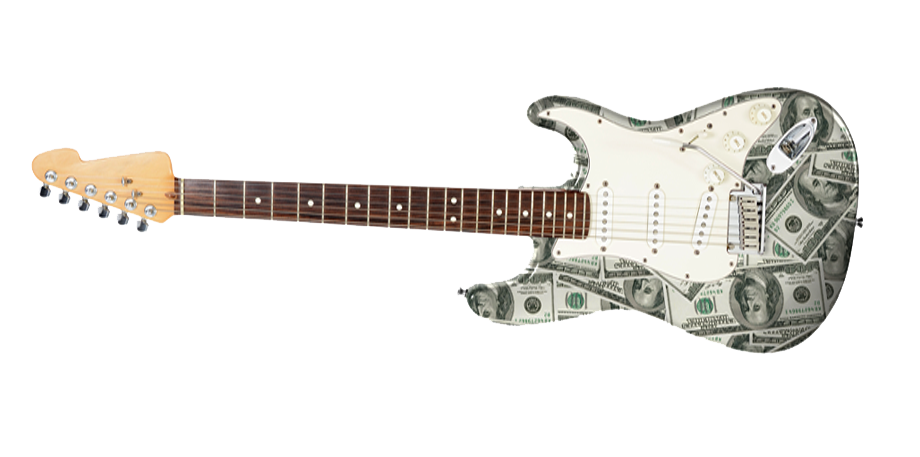Thank Benjamin Franklin for the Electric Guitar
How electricity changed the guitar forever

Guitar players a century ago struggled to get their instrument heard. That all changed when a small group of inventors added something into the mix: electricity! Although inventors like George Breed had been experimenting with strings and electric currents to produce sound as far back as the 1890s, it wasn’t until the 1920s that the first electric guitar appeared. The origins of the electric guitar were in country and big band and then early forms of rock and roll.
Acoustic guitars were used for both country and big band music, but it was particularly in the case of the latter that they posed a problem. They weren’t loud enough to be clearly heard above the other instruments. In response to this problem, individuals began looking at ways to amplify the sound of the guitar.
In 1920, instrument makers Stromberg-Voisinet created the first commercially produced electric guitar, four years after Gibson fitted an electromagnetic device to violas and basses that picked up vibrations from the bridges of the instruments and converted them into electrical signals. The Stromberg-Voisinet guitar captured vibrations from the soundboard of the guitar, which were converted into electric signals that could be sent to an amplifier or speaker. It helped to amplify the sound but it wasn’t until a man named Leo Fender showed up.
In 1950, Leo Fender, a self-taught electronics enthusiast created the Esquire, the first mass-produced solid-body guitar. Taking note of Fender’s successes, Gibson introduced its own model, the Les Paul. By 1954, with the advent of Fender’s three-pickup, solid-body Stratocaster, the three most iconic electric guitars of all time were released and music would never be the same again.
Although the most popular electric guitars like Stratocasters and Les Pauls have been around for nearly seven decades, not much has changed in terms of their design, looks, or sound. While modifications and amendments to popular models have been made along the way, some still prefer the originals.
Periodically, there are claims made that the electric guitar is dead, but it remains surprisingly resilient to further evolution. There really is no room for improvement or evolution. And while Fender is set to release an electric-acoustic hybrid guitar, many consumers don’t want it. So the electric guitar isn’t dead, people just don’t want it reinvented. Many seasoned guitar players hold on to the old adage if it ain’t broke don’t fix it.
The electric guitar has been around for over a century now and it continues to drive and inspire people. Whether you play or like to just listen, something about that guitar riff just digs deep into your soul and makes you feel. You might feel things from a simpler time when you hear an old song or you might feel the passion a player has when they are jamming really hard. Whatever reaches into your soul and brings good feelings to the surface, the guitar has had a hand in that.